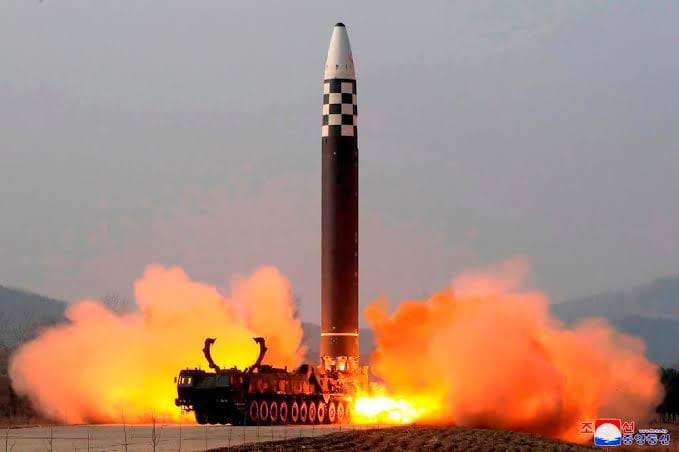South Korea retrieves North Korean space rocket debris from sea

Seoul’s military has announced on Friday that it has successfully recovered a significant portion of a North Korean space rocket that crashed into the sea.
“The complex salvage operation took 15 days to complete. North Korea’s attempt to launch its first military spy satellite ended in failure on May 31, as the rocket and its payload plunged into the sea due to a reported rocket malfunction.”

“The South Korean military deployed a fleet of naval rescue ships, minesweepers, and numerous deep-sea divers in their efforts. Late Thursday, they managed to retrieve what appears to be the main body of the rocket from the Yellow Sea. The salvaged object, identified as the primary focus of analysis, is scheduled to undergo detailed examination by specialized institutions such as the national agency for defense development, according to a statement by the Joint Chiefs of Staff.”
The wreckage was brought up from a depth of approximately 75 meters (250 feet) in waters around 200 kilometers (125 miles) southwest of Eocheong Island. Images released by Seoul’s defense ministry depict a long, white barrel-shaped metal structure with the inscription “Chonma” on it, potentially a shortened version of the rocket’s official name, Chollima-1. The rocket was named after a mythical winged horse frequently featured in Pyongyang’s propaganda.
The United States, South Korea, and Japan criticized the May 31 launch, claiming that it violated UN resolutions prohibiting North Korea from conducting tests involving ballistic missile technology. Analysts have pointed out the significant technological similarities between the development of intercontinental ballistic missiles and space launch capabilities.
South Korea has been diligently working over the past two weeks to recover the space rocket debris, as it could provide valuable insights into Pyongyang’s ballistic missile and satellite surveillance programs.
Following the failure on May 31, North Korea vowed to successfully launch its spy satellite in the near future. The country has previously argued that its military spy satellite is necessary to counterbalance the increasing US military presence in the region.
On Thursday, North Korea fired two short-range ballistic missiles, shortly after issuing a warning of an “inevitable” response to the ongoing joint military drills between the United States and South Korea.
Diplomatic relations between the two Koreas are currently at one of their lowest points in years, with limited progress in negotiations. North Korean leader Kim Jong Un has declared his country an “irreversible” nuclear power and called for an escalation in weapons production, including tactical nuclear weapons.














